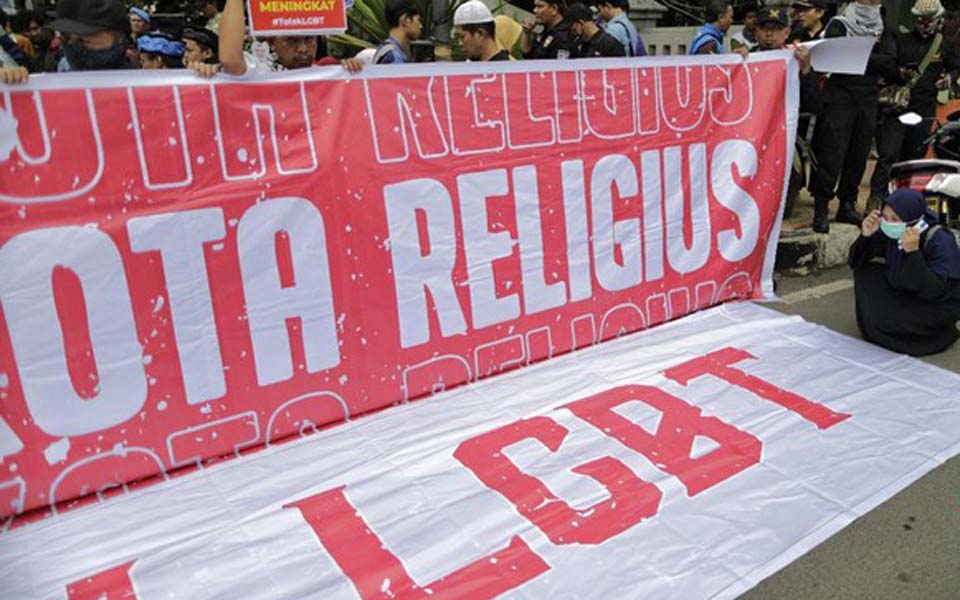Jakarta – In the lead up to New Years Eve this year, a number of regional governments issued appeals warning the public not to be excessive in celebrating the New Year or to do so without fireworks or holding parties.
The South Sulawesi provincial government asked the public not to hold parades, firework displays or parties. The public was asked to do something positive such as making donations to the people of Banten and Lampung who were it by a tsunami on December 22.
A similar appeal was issued by the North Kalimantan government who asked the public not to light firecrackers or fireworks and even that it would be better if they did not blow trumpets. Entertainment venues were also asked to close. The North Kalimantan provincial government said it would be better if the public held religious events instead.
The North Kalimantan provincial government’s appeal was similar to that of provincial governments in Riau, West Nusa Tenggara, South Tangerang, Banten and the Ogan Komering Hilir regency in Riau.
A number of regional governments wanted the public to be sensitive to the disasters that have struck several regions urging people to have sympathy with those hit by natural disasters by not celebrating on New Year’s Eve.
University of Indonesia anthropologist Rudy Kipam however is of the view that such appeals are ineffective and will not be complied with. According to Kipam, appeals not to celebrate New Year’s Eve are illogical and will not prevent the public from welcoming in and celebrating the New Year.
Kipam believes that the justifications behind the regional government appeals that there have been natural disasters will be ineffective in stopping people from celebrating New Year.
“For example if a natural disaster occurred in the lead up to the Prophet Muhammad’s birthday or Idul Fitri [Lebaran, holiday celebrations at the end of the Islamic fasting month]. Would they not allow the celebration of Lebaran? Would it not be allowed and deemed disrespectful and insensitive to those who have been hit by disasters”, Kipam explained to CNN Indonesia on Monday December 31.
Kipam suspects that natural disasters were not the main reason for regional government's appeal not to celebrate New Year saying that there were political reasons behind them.
According to Kipam the regional governments issuing appeals are politicising New Year’s Eve as if they want to turn New Year’s Eve into a religious ritual. Yet it is completely different.
“It's politicisation. It was the issue of religious sentiment that was actually taken up. I interpret this as being as if the Christian New Year [is being turned into] a ritual of a certain religion [Islam]”, said Kipam.
Kipam believes that the position taken by these regional governments is flow on from the identity politics which are becoming widespread in the public sphere. In the end regional heads become more brazen in setting restrictions on things they should not.
“And those who prohibited New Year celebrations are also part of those playing identity politics”, said Kipam. “What also saddens me is that entertainment venues weren’t allowed to open, what’s really going on? Is the country under a state of emergency? There’s no logic to it whatsoever”.
Kipam is concerned about the position being taken by regional governments saying that these appeals are creating social barriers and making them sharper.
Yet, continued Kipam, despite Indonesia’s many differences regional governments should be creating social harmony. He asserts that Indonesia is a country formed from heterogeneous tribal, religious and ethnic social groups.
“Regional heads should talk about nationality, about harmony, unity, how come instead they are straying from [the state ideology of] Pancasila. This is sad. It’s actually provocative. This could create social barriers will become more tangible. It should be stopped”, said Kipam. (bmw)
[Translated by James Balowski. The original title of the article was “Politik Identitas di Malam Tahun Baru”.]
Source: https://www.cnnindonesia.com/nasional/20181231155831-20-357561/politik-identitas-di-malam-tahun-baru















